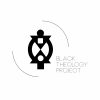The Millennial Womanism Project (TMWP) Presents “Millennial Womanists To Watch”
A monthly profile highlighting emerging voices doing incredible work in ministry, the academy and in social justice work.

The Millennial Womanism Project (TMWP) Presents “Millennial Womanists To Watch”
A monthly profile highlighting emerging voices doing incredible work in ministry, the academy and in social justice work.
Name: Ryan Hawthorne
Age: 29
City: Houston, TX
TMWP: What does it mean to be a millennial woman of African descent in ministry, religious studies, or faith based social advocacy?
Ryan Hawthorne: For me, being a millennial woman of African descent in ministry means carrying our ancestors and traditions with me into worship experience, every meeting, and pastoral session I attend. It means breaking into or creating space for our stories to be told as well as decentering whiteness as the Christian default in an effort to pursue community justice and healing.
TMWP: Tell us about your work? What inspired you to do this work?
Ryan Hawthorne: I am the founder and director of an afterschool makerspace for students in grades 4-8, and a youth minister and chaplain at an Episcopal Church and School. As a pastoral presence in a predominantly white environment, I am constantly wondering what it would mean for the Church and the world if student ministries laid the groundwork in teaching young white people to name and recognize their privilege, to decenter themselves and their whiteness from the Christian narrative, and to make space for other voices and stories. This practice looks different across the three areas of my work but one of the ways I do this at the makerspace is through daily conversation. We start the year by asking what it means to be a maker, what it means to be in community, and what it means to make in community. Once we have those understandings as a foundation for student discussion and work, we spend the remainder of the year creating opportunities for students to wonder aloud about who gets to be a celebrated artist or maker; how artists and makers can help amplify voices within their communities; how artists and makers have opportunities to speak truth to power on a larger scale than others at certain times; and how artists and makers call us to self-reflection and repentance both individually and as a community.
Initially I—along with my wonderful team—was inspired to do the work at the makerspace by students who needed to develop soft skills (collaborating, planning, etc.) and I wondered if we could offer acquisition of those skills alongside hard skills in a non-academic environment. I also wanted to link spirituality and justice with the education community’s focus on S.T.E.M./S.T.E.A.M. in a student centered environment. I am continuously inspired by our students, many of whom are justice oriented and want to create space in their own work for voices other than their own.
TMWP: How does your work expand traditional womanist epistemologies?
Ryan Hawthorne: Womanist epistemologies create and expand spaces for our stories and for healing, particularly for Black women. In my daily work with students I seek to use this understanding to push the boundaries of maker(space) culture. Makerspaces are what is known as third spaces, they are neither work nor home for the person who desires to create or do; they are also neither home nor church for the person who desires community. And yet, the maker movement has focused on the marriage of physical space (sites, workshops) and communal space (driving making and creativity) within the framework of self-fulfillment and economic pursuits. Very few people have considered offering makerspaces as places of community development, justice oriented creativity, and spiritual centers for shifting narratives.
So really, my work does not expand traditional womanist epistemologies so much as it attempts to pull the maker practice into the womanist hermeneutic of creating space for justice, healing, and spirituality, through a student centered community.
TMWP:. What can we expect from you within the next year?
Ryan Hawthorne: These last three years I’ve been in startup mode getting the makerspace up and running. I’ve planned this next year as a time of discerning where God might call me next. However, it my deepest desire to outfit a bus with our makerspace and make it mobile and FREE so that we can take our program around Houston to students who otherwise would not be able to commute to our site or afford our afterschool program. Ultimately, I would love to partner with a church in Houston to offer a Freedom School and the mobile makerspace jointly because makerspaces tend to function as money driven pursuits and can be exclusionary and I would like to level the playing field so that more students have the opportunity to learn 3D modeling and printing, laser cutting, and other S.T.E.A.M.S. related skills.
TMWP: How can people support your work?
Ryan Hawthorne: People can always support through prayer. I am always looking to connect with artists, makers, advocates, and ministers in or near Houston.
TMWP:. Where can they go for more information and updates?
Ryan Hawthorne:
Facebook – https://www.facebook.com/ryanashlea
Instagram – @moon.womyn
Millennial Womanism is an emerging concept developed by Liz S Alexander and Melanie C Jones that seeks to draw upon a unique womanist epistemological and methodological framework utilizing a millennial lens.


Facebook Comments